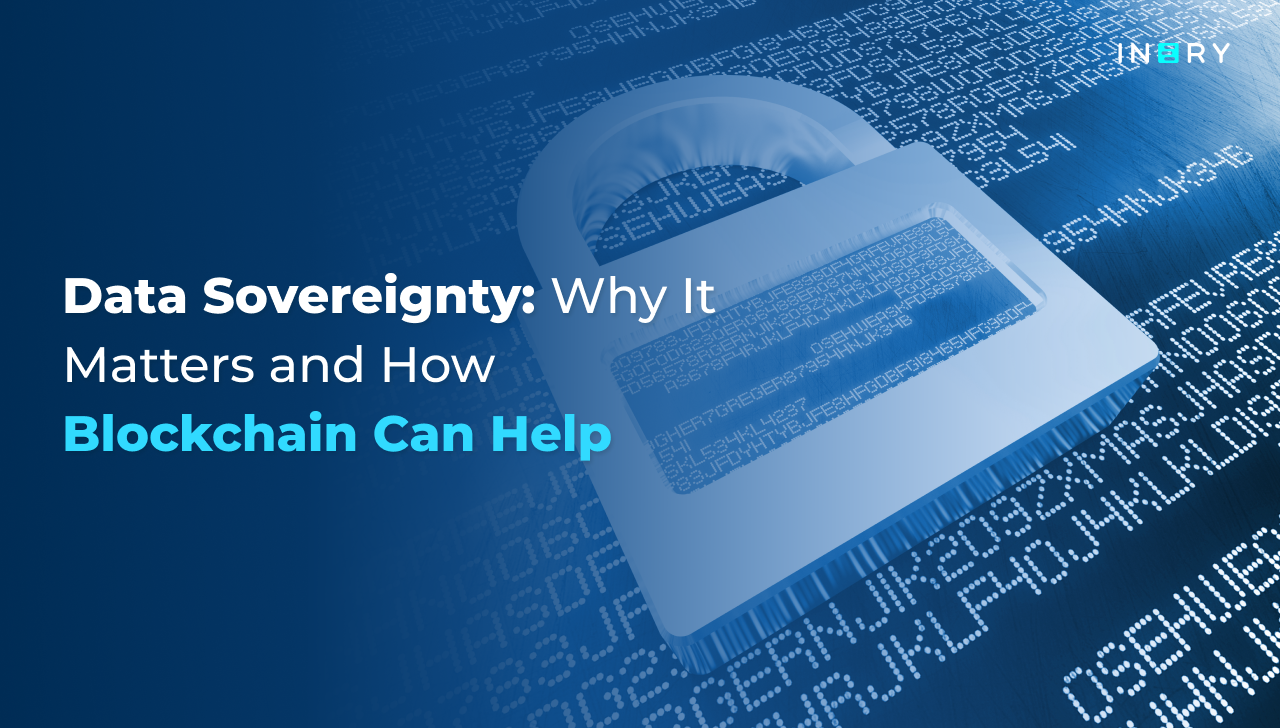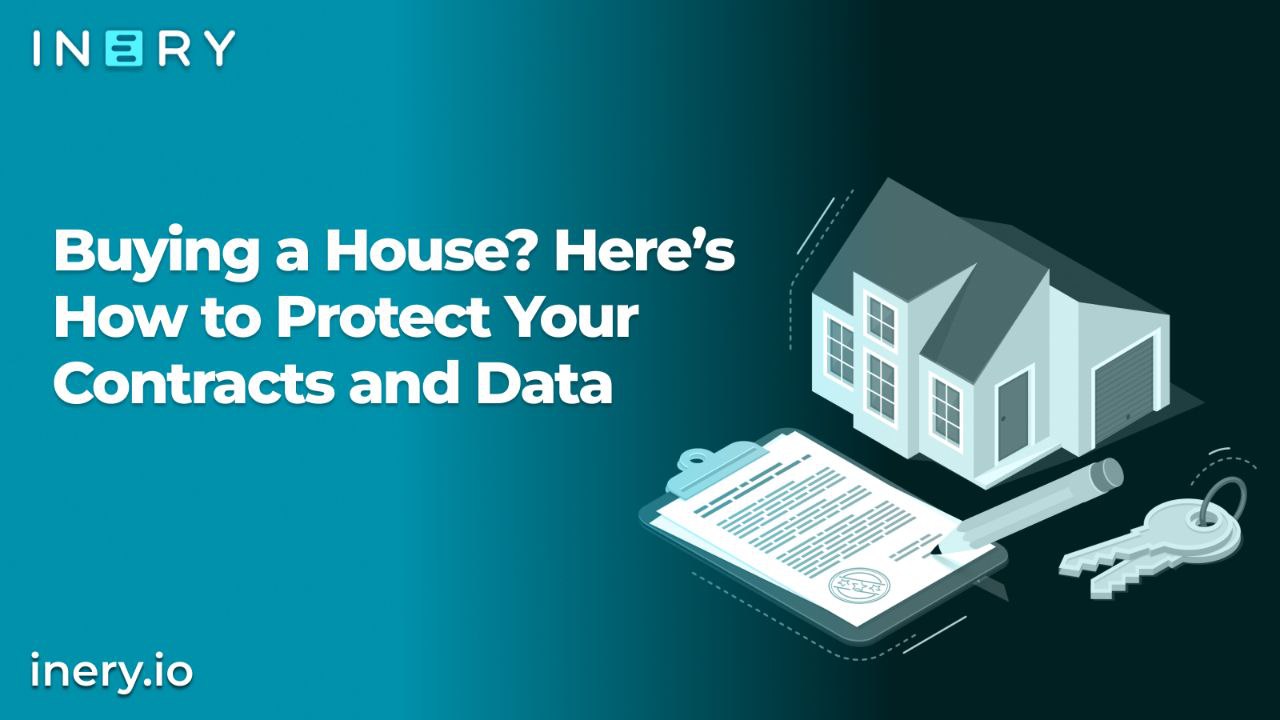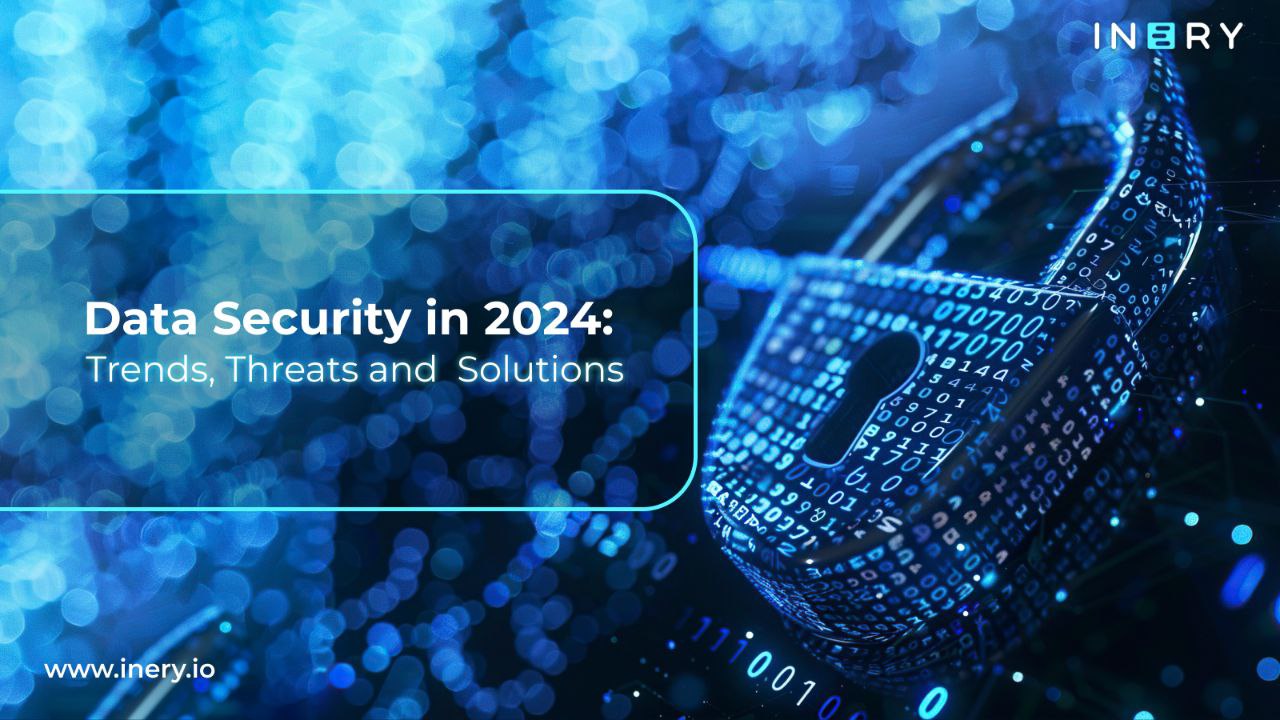Buying a house, whether it’s your first time or your tenth, is a milestone event. It often involves a mixture of excitement, anxiety, and plenty of decision-making, especially when you consider market trends, loan approvals, and a stack of legal documents. But amid all this, there’s another factor that tends to slip under the radar: how do you protect your contracts and your personal data throughout the process?
This blog explores the importance of safeguarding your real estate transactions in a landscape where digital documentation is on the rise. We’ll address the complexities of modern real estate markets, the prevalence of fraud, and how it can be carried out in both traditional and online settings. Finally, we’ll discuss how using a decentralized data management approach, like Inery DLT, can help defend you against data misuse and fraud.
Understanding the Real Gravity of Buying Property
Real estate is often described as one of the most substantial investments in a person’s life. Purchasing property is a financial decision. However, let’s not forget, it’s also an emotional and personal one. For many, it represents security, achievement, and the beginning of a new chapter in their life. Whether it’s a starter home or the “forever home” you’ve always envisioned.
Yet, this industry isn’t exactly simple to navigate. Agents, mortgage lenders, inspectors, appraisers, notaries, and various government offices are often involved. Each player has a distinct role, along with specific responsibilities and requirements. While these roles are designed to ensure the legitimacy and fairness of a transaction, the sheer number of steps and paperwork can become overwhelming.
Additionally, the global real estate market has its ups and downs influenced by interest rates, economic policies, demographic shifts, and consumer confidence. In other words, this market is both lucrative and unpredictable.
With so much at stake, buyers and sellers are understandably on high alert for anything that might jeopardize the deal. Beyond the usual issues of property valuation and closing costs, there’s also the possibility of fraudulent activities.
Inaccurate titles, forged signatures, and manipulated contracts can derail the process and cause significant financial losses. Now add the modern element of digital documentation and online transactions, and you introduce a brand-new layer of complexity. It’s crucial to stay aware of these vulnerabilities if you plan to safeguard your investment and personal data in today’s increasingly digitized environment.
From Paper to Pixels: The New Reality of Real Estate Transactions
Over the past decade, many industries have moved toward online platforms for efficiency, real-time collaboration, and remote accessibility. Real estate is no exception. Nowadays, it’s not uncommon to explore listings on websites, attend virtual showings, sign documents electronically, and even finalize financial transactions online. Real estate agents, lenders, and legal firms have also adopted digital tools to streamline workflows, reduce paperwork, and expedite communication.
This digital shift offers clear advantages. It shortens waiting times for approvals, speeds up due diligence, and eliminates the need for multiple in-person visits to offices. Instead of a notary physically stamping a mound of papers, you might receive digital copies in your inbox, sign them, and share them immediately. This process is more convenient for both buyers and sellers. Particularly those in different cities or countries.
However, convenience often comes with risks if it isn’t paired with resilient security measures. Online platforms and digital signatures can be targeted by hackers looking to intercept sensitive information.
Additionally, systems that rely on conventional databases are sometimes vulnerable to data manipulation. If a cybercriminal tampers with land records or mortgage documents, the consequences can be serious, ranging from fraudulent loan approvals to ownership disputes. Understanding these risks underlines why protecting digital contracts and personal data is just as important as any other aspect of the buying process. Unless you’re vigilant, the efficiency that technology promises can quickly become a threat to your property rights and financial security.
Real Estate Fraud: What is it?
Real estate fraud has been around for a long time, well before the digital age. But the internet era has accelerated and diversified the ways fraud can happen. Below are some of the most common types you should be aware of:
-
Title fraud
This occurs when someone forges title documents or impersonates the rightful owner to transfer property ownership illegally. A fraudulent party might take out a mortgage using someone else’s property title, leaving the unsuspecting owner with massive debts or legal disputes. -
Mortgage fraud
In this scenario, false information is provided during the loan application process. This might mean exaggerating income, inflating property values, or misrepresenting the buyer’s financial standing. While sometimes the intent is just to obtain a bigger loan, it can also be done maliciously to launder money or commit other financial crimes. -
Wire transfer scams
This is a relatively new but very dangerous tactic in which scammers hack email accounts or impersonate legal professionals. They might send out instructions for a buyer to wire down payments or closing costs to a fraudulent account. By the time the buyer realizes, the money is already gone. -
Foreclosure rescue scams
Predatory “consultants” or “rescue services” promise a homeowner on the verge of foreclosure that they can save the property; usually by signing paperwork that actually transfers ownership. -
Property flipping schemes
While flipping houses can be legitimate, fraudulent flipping involves collusion to artificially raise the value of a property. This can include fake appraisals or false renovation claims. The property is then resold quickly at an inflated price, leaving lenders and buyers in a precarious financial situation.
With each of these fraud types, documentation is key. Fraudsters rely on forged signatures or altered paperwork to legitimize their schemes. Stopping these illegal actions often comes down to verifying documents and authenticating parties. That’s where data management and security solutions can make a significant impact.
When fraudulent behavior occurs, it goes beyond losing money. Buyers may find themselves evicted from homes they believed they owned, or saddled with massive debts they didn’t actually sign for. In extreme situations, these cases end up in court, leading to protracted legal battles and emotional distress. For sellers, fraud can destroy the trust of potential buyers, reduce property value, and harm an otherwise positive reputation.
Additionally, data breaches can expose critical financial and personal information such as social security numbers, bank accounts, and credit scores. Once that data is out, it might be used for identity theft, credit card fraud, or even blackmail. Real estate professionals, from agents to legal teams, also face the fallout of lost credibility, along with possible legal liabilities if it’s found that they neglected to safeguard client information.
How To Protect Yourself and Your Property
Real estate transactions hinge on trust, but whenever information can be manipulated, that trust erodes. People lose money, and confidence in the system crumbles too. That’s why data security is no longer a luxury. It’s a must.
A good way to stay protected is by using a decentralized platform like Inery. Instead of relying on one vulnerable server, Inery employs DLT tech that updates in real time across multiple nodes. Each contract or record is sealed and timestamped, making any unauthorized edits immediately obvious. It keeps documents accurate and fully traceable, giving buyers, sellers, and professionals the confidence that nobody’s sneaking in changes behind the scenes. Sensitive information is visible only to those who need it, preserving privacy while ensuring transparency where it counts.
For buyers, this means they can confirm a title really belongs to the seller. For sellers, it’s knowing forged signatures won’t go unnoticed. Professionals, from brokers to lawyers, also gain reliable records and smoother workflows. Red tape is reduced, and mistakes are easier to spot and fix. Audits or regulatory checks become less stressful, since everything’s stored in a unified system that’s both secure and easily accessible.
Conclusion
The real estate sector evolves in tandem with economic shifts and technological developments. As we lean into digital solutions, the potential for fraud grows if security measures can’t keep up. Even if you meticulously research property values and interest rates, a single moment of complacency in data security can compromise everything.
Historically, real estate has been grounded in tangible paperwork and in-person signings. But we’re moving toward online processes due to convenience, global reach, and changing consumer behaviors. This makes strong cybersecurity and data integrity an integral part of the real estate process rather than an afterthought. Whether you’re purchasing a vacation home across the world or selling a property to a buyer you’ve never met in person, having a reliable, tamper-proof solution builds confidence. That’s the gap Inery is designed to fill.
Buying a house is a monumental step, but it can also be a stressful and complicated undertaking. As the industry moves further into digital processes, safeguarding your contracts and data becomes non-negotiable. From wire fraud to forged documents, the threats are varied and can escalate quickly if not addressed.
A decentralized data management solution, like the one offered by Inery, goes a long way in protecting property titles, preventing unauthorized alterations, and keeping personal details secure. By combining transparency, immutability, and privacy in one platform, Inery offers a forward-looking approach to handling real estate transactions in a rapidly changing world.
If you’re thinking about investing in real estate or are already in the process, consider leveraging a DLT-based data management system to ensure peace of mind.

Inery•
1 year ago
Why Minimalist Data Management Leads to Better Performance
Learn why adopting a minimalist approach to data can boost efficiency, lower expenses, and keep your information secure. ...READ MORE

Share

Inery•
1 year ago
Is There Such a Thing as Too Much Data?
Overwhelmed by the digital clutter? Discover why too much data isn’t the problem. It’s the lack of organization. Learn how tools like Inery can transform digital chaos into a streamlined, secure, and efficient system. ...READ MORE

Share

Inery•
1 year ago
Data Sovereignty: Why It Matters and How Blockchain Can Help
Explore the profound impact of data sovereignty on privacy, security, and global data governance, and discover how blockchain technology offers innovative solutions to these challenges. ...READ MORE

Share

Inery•
3 years ago
Developing Web3 - Why Manpower Is At The Top Of The List Of Priorities
With the interest and value of Web3 expanding, talented blockchain developers are in great demand. However, Web3 recruiters and companies are met with a unique set of challenges. ...READ MORE

Share
Most popular today



